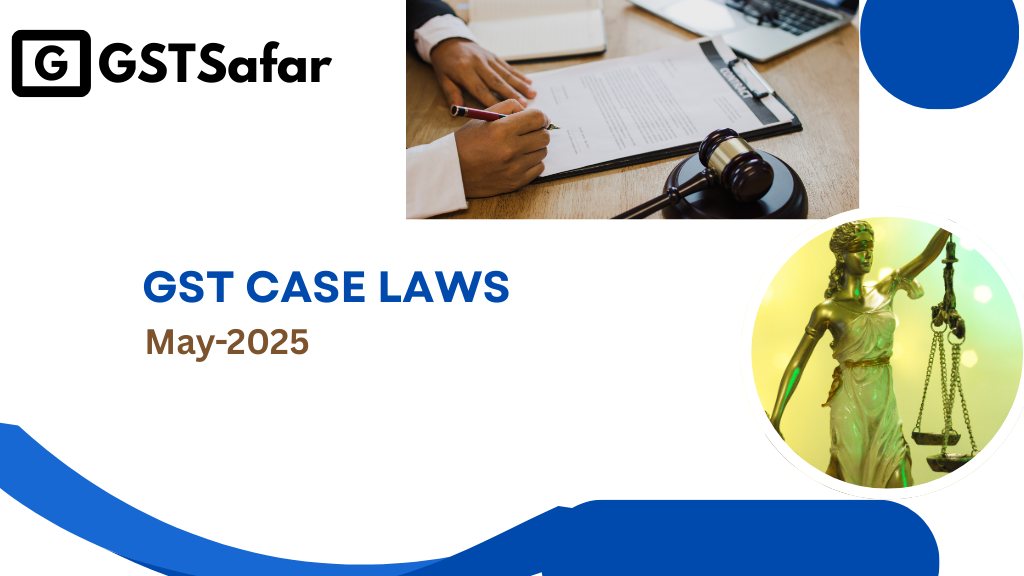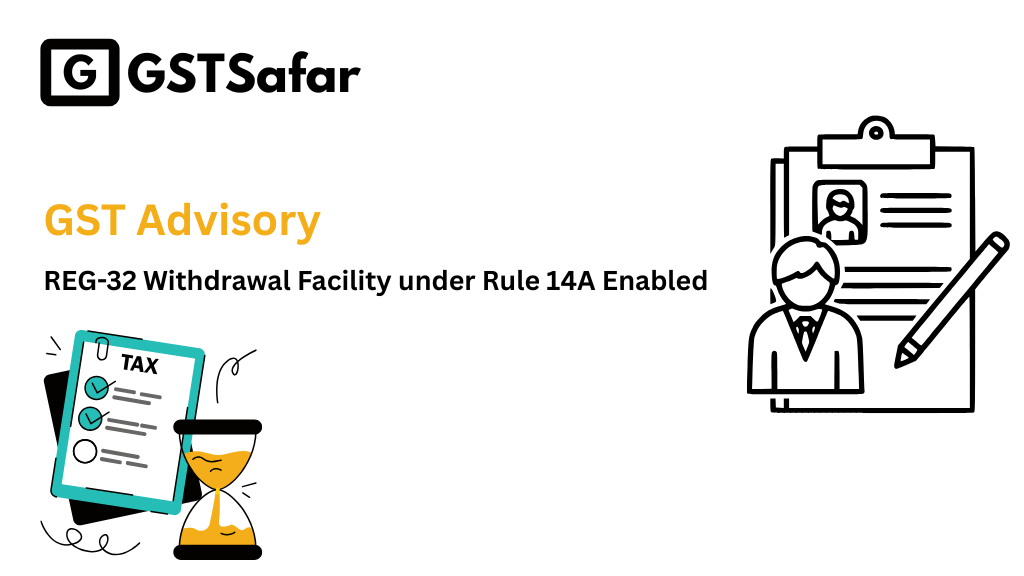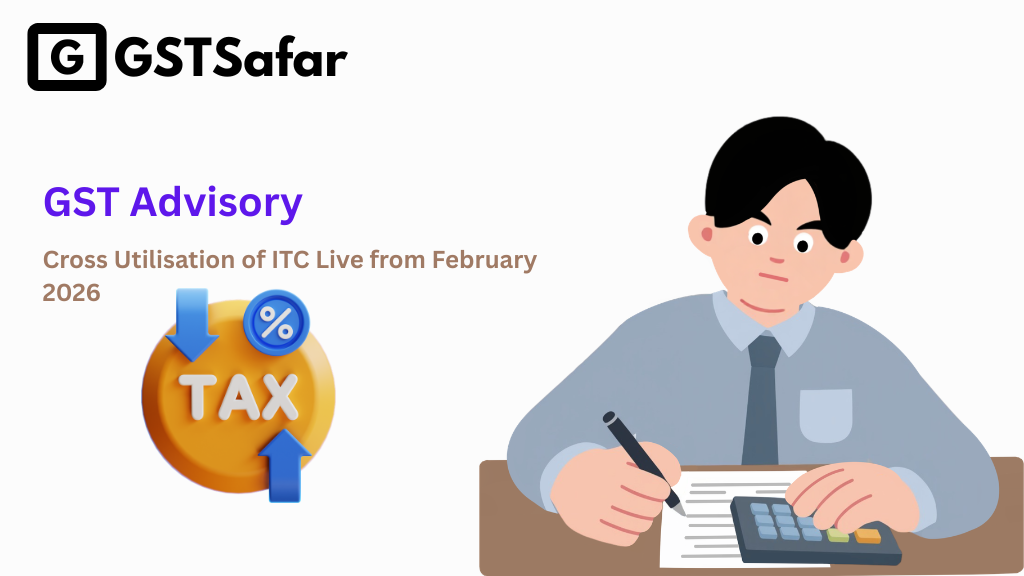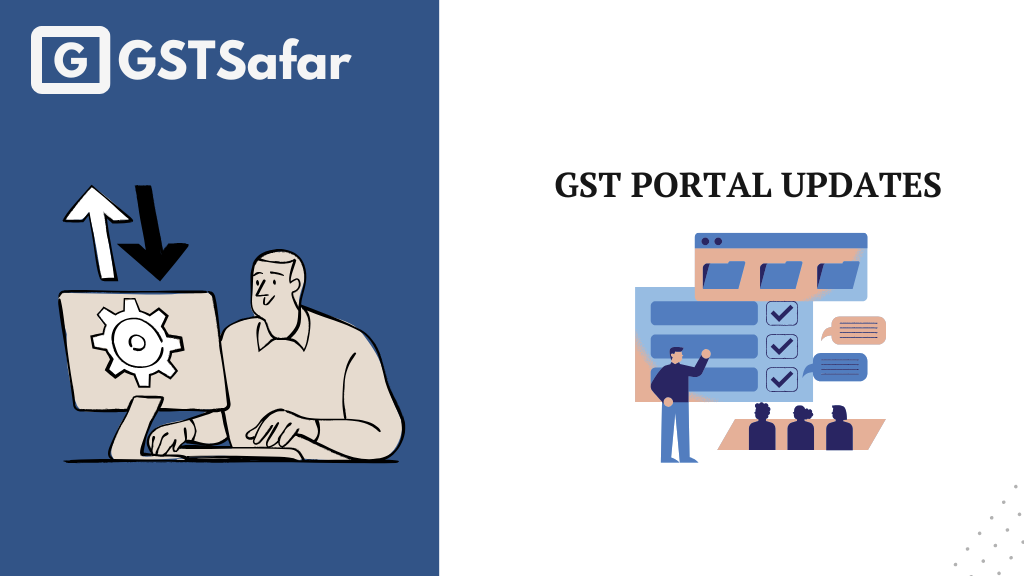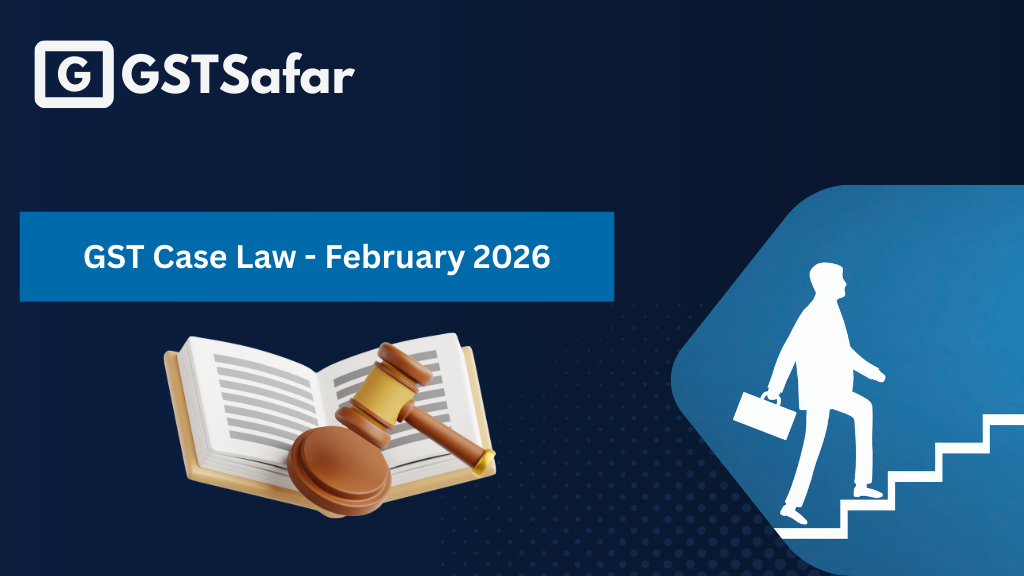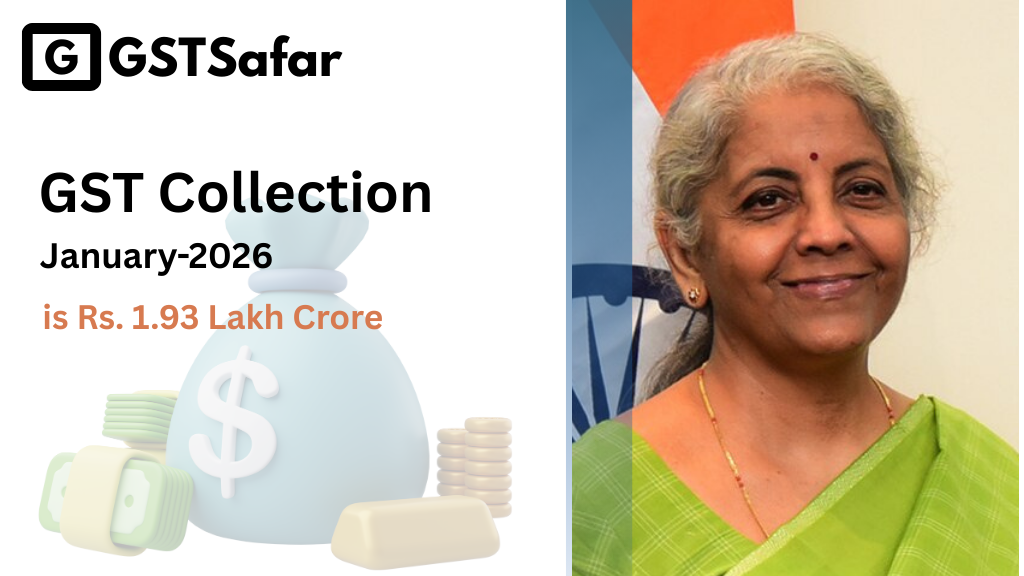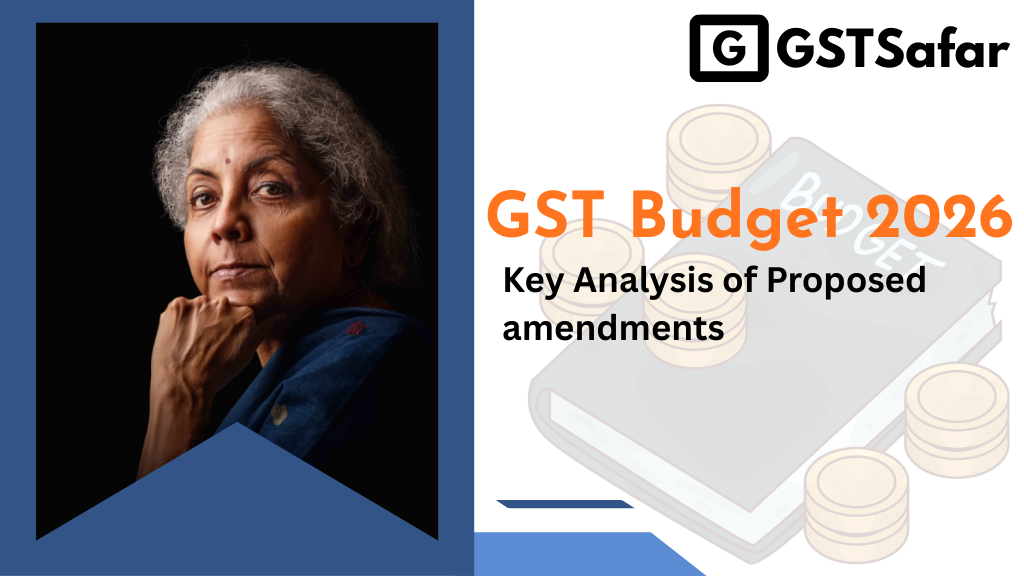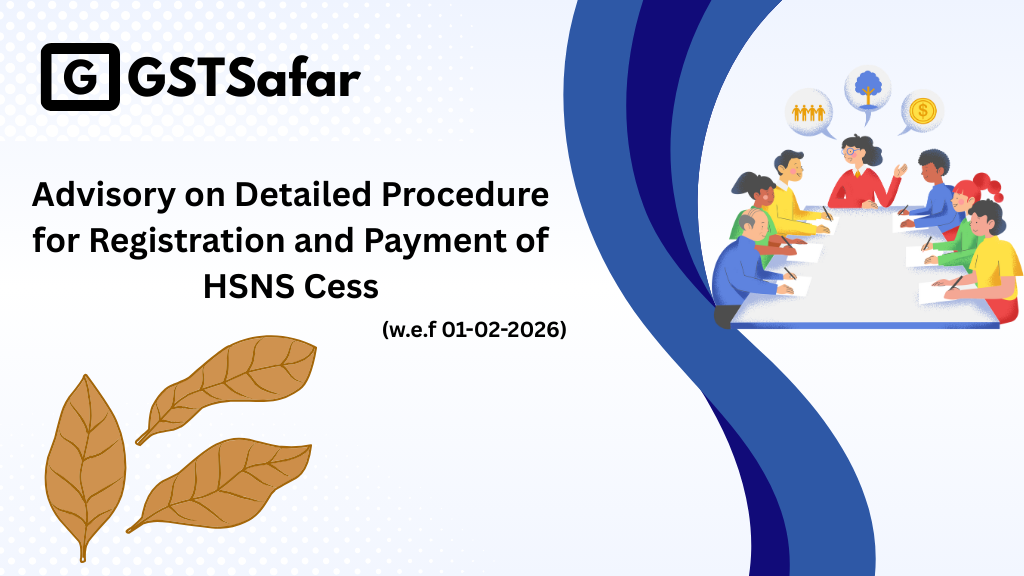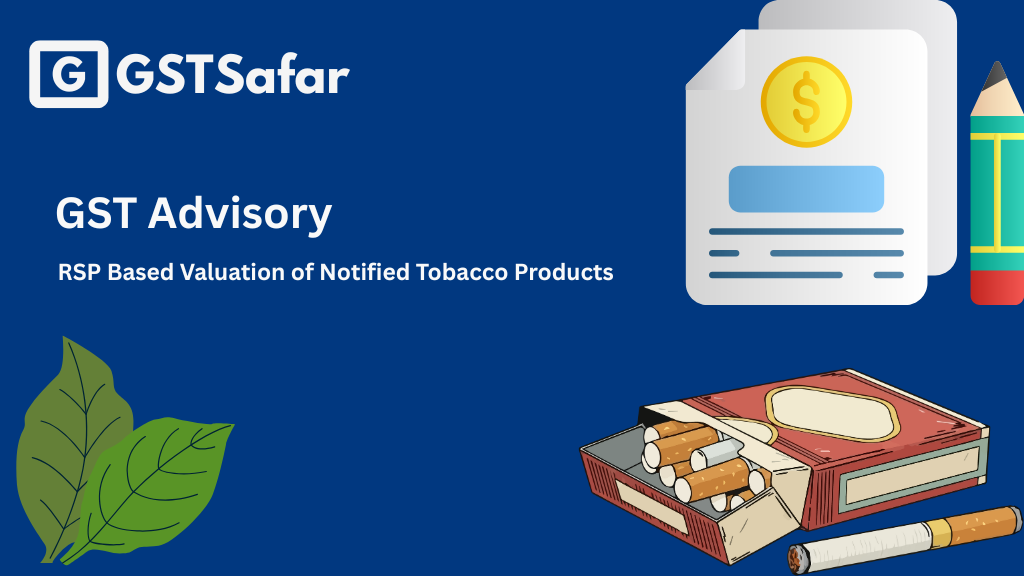Table of Contents
ToggleGST Case Laws May 2025
The goal of this article is to cover all recent GST case laws May 2025. All latest high court judgments on gst and all the latest Supreme Court judgments on gst issued in May 2025 have been covered in this article. All the latest GST case laws of May 2025 in this article have been classified by name, date, judge, counsel, GST concept, GST section, etc. In addition, a PDF of the GST case law is provided with the case law so that the user can download it for further study.
GST Case Laws on suspended GST registration
Delhi High Court ordered the State GST department to act promptly and decide on the matter within one month after getting the taxpayer’s reply.
| Delhi High Court Judgement 2025 |
| Name of case: ST Enterprises vs. Commissioner of State GST and VAT |
| Date of Judgment: 26-05-2025 |
| Appeal No: W.P. (C) No. 7276 OF 2025 |
| Judges: PRATHIBA M. SINGH and Rajneesh Kumar Gupta, JJ. |
| Counsel Name: Siddarth Malhotra |
| Fact of the Case: In this case, the taxpayer (assessee) received a show cause notice from the State GST department for cancellation of GST registration, alleging that the assessee had issued invoices without actually supplying goods or services—a serious offence under GST. As a result, the department also suspended the assessee’s registration. The assessee, in response, stated that they had repeatedly written to the department requesting restoration of their GST registration but received no reply. They argued that the suspension was causing undue hardship and that no final decision had been taken on the show cause notice for a long time. The department, on the other hand, explained that the Central GST department had issued an alert against the assessee, which triggered the issuance of the show cause notice and the suspension of registration by the State GST authority. |
| Held by court : In this situation, the show cause notice (SCN) issued by the State GST department for cancellation of registration had remained unresolved for nearly six months. Given this long delay, the court directed that the assessee should be given a fair opportunity to file a proper reply to the notice. The court specifically allowed the assessee to submit a detailed reply to the State GST department, including information on whether any SCN was also issued by the Central GST (CGST) department, particularly regarding issues like wrongful availment of Input Tax Credit (ITC). Once the assessee submits this reply, the State GST department must examine the response and take a final decision on the registration issue within one month. This ensures that the matter is not left pending indefinitely and that the assessee gets a chance to be heard before any final cancellation of registration is confirmed. |
| In favor of : Assessee |
| Topic of GST : Registration |
| Section of GST: Section 29 of CGST Act, 2017 |
GST Case law on Penalty notice will survive despite original tax demand is dropped.
Allahabad High Court says Penalty can still be validly imposed u/s 122 even on dropping of proceedings u/s 73/74.
| Allahabad High Court Judgement 2025 |
| Name of case: Patanjali Ayurved Limited |
| Date of Judgment: 29-05-2025 |
| Appeal No: WRIT-TAX NO. 1603 OF 2024 |
| Judges: Shekhar B. Saraf and Vipin Chandra Dixit, JJ. |
| Counsel Name: Arvind P. Datar, Ashwarya Sharma, Nishant Mishra, Devansh Srivastava, Kinjal Shrivastava, Ms. Vedika Nath and Yashonidhi Shukla, N. Venkatraman, Parv Agarwal, N.C. Gupta and Gaurav Mahajan, |
| Fact of the Case: In this case, the tax authorities alleged that Patanjali Ayurved engaged in circular trading of invoices issuing invoices without actual movement of goods through its three units located in Uttarakhand, Haryana, and Maharashtra for the period from April 2018 to March 2022. Initially, the Directorate General of GST Intelligence (DGGI) issued show cause notices (SCNs) under Sections 74 and 122 of the CGST Act, and proposed a hefty penalty of ₹273.51 crore under Section 122(1)(ii) and (vii), which deal with wrongful availing of ITC and issuance of invoices without supply of goods. However, during adjudication, the tax authorities dropped proceedings under Section 74 which deals with determination of tax involving fraud or willful misstatement indicating that no tax demand was upheld. Despite this, they continued with penal proceedings solely under Section 122 for the units in Haryana and Maharashtra. Patanjali challenged this action, arguing that penalty under Section 122 cannot be imposed unless there is first a determination of tax liability under Sections 73 or 74. They also contended that penalty under Section 122 should follow conviction under Section 132, which deals with criminal offenses under GST. |
| Held by court : the conclusion of proceedings under Section 74 (which deals with tax demands due to fraud or suppression) does not automatically cancel or stop penalty proceedings under Section 122 (which deals with specific offences like issuing fake invoices). The law recognizes that even if tax proceedings under Section 74 are dropped or concluded in favor of the taxpayer, the penalty proceedings under Section 122 can still continue independently. This is because Section 122 covers different types of violations, such as issuing invoices without any actual supply of goods (fake invoicing), which are offences in themselves, separate from actual tax evasion. Also, Section 122 penalties are civil penalties and are decided by a GST adjudicating officer, not by a criminal court. On the other hand, Section 132 deals with criminal prosecution, like arrest and jail, and requires a court conviction. So, the argument that penalty under Section 122 needs a conviction under Section 132 is incorrect. The two sections serve different purposes—Section 122 is for administrative penalties, while Section 132 is for criminal action. Therefore, even if the taxpayer is not convicted or if proceedings under Section 74 are dropped, the authorities can still impose penalties under Section 122 for offences like fake invoicing. |
| In favor of : Revenue |
| Topic of GST : Penalty |
| Section of GST: Section 122 & 74 of CGST Act, 2017 |
Download PDF of Allahabad High Court judgement of Patanjali Ayurveda Ltd
GST Case laws on Pre-deposit payment through Electronic Credit Ledger
Supreme Court supports High Court judgement regarding electronic credit ledger can utilised for the payment of pre-deposit.
| Supreme Court Judgement 2025 |
| Name of case: Yasho Industries Ltd |
| Date of Judgment: 19-05-2025 |
| Appeal No: SPECIAL LEAVE PETITION (CIVIL) Diary No(s). 17547 of 2025 |
| Judges: Mrs. B.V. Nagarathna and SATISH CHANDRA SHARMA, JJ. |
| Counsel Name: N. Venkatraman, A.S.G., Gurmeet Singh Makker, AOR, V.C. Bharathi, Ms. Pankhuri Srivastava, Amit Sharma -II, Piyush Beriwal and Rajeev Ranjan,Ms. Tas Law Abhishek A. Rastogi, Ms. Trishala Trivedi, Utsav Trivedi, Ms. Pooja M. Rastogi, Ms. Garima Gupta,Ms. Shivani Bhushan |
| Fact of the Case: M/s. Yasho Industries Limited, a public limited company engaged in manufacturing and exporting chemicals.The company was availing IGST refund on exports under Section 16(3)(b) of the IGST Act, 2017.From 09.10.2018, due to Notification No. 54/2018-CT and Rule 96(10) of CGST Rules, IGST refund was restricted where imports were duty-free under Advance Authorization.To comply, Yasho Industries reversed ITC worth ₹3 crore “under protest”.Later, a Show Cause Notice (SCN) was issued demanding refunded IGST with interest and penalty.After the SCN was confirmed on 20.09.2022, the petitioner filed an appeal and paid ₹3,36,82,000 as pre-deposit using the Electronic Credit Ledger (ECL) via Form GST DRC-03.However, the department via letter dated 25.04.2023, insisted that the pre-deposit must be paid through the Electronic Cash Ledger (ECL) instead, rejecting the credit ledger payment.The petitioner challenged this letter before the Gujarat High Court. |
| Held by court : The Gujarat High Court held that the use of Electronic Credit Ledger (ECL) to make pre-deposit under Section 107(6)(b) of the CGST Act is valid. The court relied on: Bombay High Court ruling in Oasis Realty.CBIC Circular dated 06.07.2022, which clarified that output tax arising out of proceedings may be paid using the Electronic Credit Ledger. The impugned letter dated 25.04.2023, which required payment through the cash ledger, was quashed. The Supreme Court has supported the Gujarat High Court’s decision, allowing taxpayers to use their Input Tax Credit (ITC) from the Electronic Credit Ledger to make the mandatory 10% pre-deposit required for filing an appeal under Section 107(6) of the CGST Act. |
| In favor of : Assessee |
| Topic of GST : Pre-Deposit Payment for Appeal |
| Section of GST: Section 107 of CGST Act, 2017 |
Downlaod PDF of Supreme Court Judgement on Yasho Industries
GST Case law on Notices Under Section 61
Jharkhand High Court says the notices issued were without jurisdiction and were quashed by the court.
| Jharkhand High Court Judgement 2025 |
| Name of case : Sri Ram Stone Works vs. State of Jharkhand |
| Date of Judgment : 09-05-2025 |
| Appeal No : W.P. (T) Nos. 1239 of 2025 |
| Judges : M.S. RAMACHANDRA RAO, CJ. AND Deepak Roshan, J. |
| Counsel Name : Sumeet Kumar Gadodia, Mrs. Shilpi Sandil Gadodia, Ranjeet Kushwaha, Ms. Shruti Shekhar, Ms. Sanya Kumari and Ms. Nidhi Lall, |
| Fact of the Case: In this case, the GST officer issued notices under Section 61 of the CGST Act to the petitioners for scrutiny of their returns. However, instead of identifying specific discrepancies in the returns filed, the officer compared the prices at which the petitioners sold stone-boulders or stone-chips with the prevailing market rates. Based on this price comparison, the officer issued show cause notices asking the petitioners to explain why tax recovery proceedings should not be initiated against them. The petitioners challenged these notices through writ petitions, arguing that such action went beyond the scope of scrutiny under Section 61, which is meant only to address discrepancies in filed returns, not to assess pricing decisions. |
| Held by court : Section 61 of the CGST Act is intended to allow the tax officer to scrutinize a taxpayer’s return and point out any discrepancies or errors based on the return and related records. If the taxpayer fails to correct those discrepancies, further action under Sections 65 to 67 or Sections 73/74 may follow. However, in the present case, the officer went beyond this scope by comparing the prices at which the petitioners sold their goods with market prices and issuing notices based on that comparison. This approach was held to be beyond the legal authority granted under Section 61, which does not allow officers to question the pricing of goods unless the transaction is proven to be fake or sham. Simply selling goods at a price lower than the market rate does not give the department the right to treat the difference as taxable. Therefore, the notices issued were without jurisdiction and were quashed by the court. |
| In favor of : Assessee |
| Topic of GST : Assessment |
| Section of GST: Section 61 of CGST Act, 2017 |
GST Case Law on Refund of ITC Accrued Before 18.07.2022 Cannot Be Denied for Late Filing
Supreme Court found no merit in the challenge and dismissed the SLP
| Supreme Court Judgement 2025 |
| Name of case : Assistant Commissioner of Central Taxes vs. Gemini Edibles and Fats India Ltd. |
| Date of Judgment : 09-05-2025 |
| Appeal No : SLP Appeal (C) Nos. 12495-12498 of 2025 |
| Judges : SANJIV KHANNA, CJ. and Sanjay Kumar, J. |
| Counsel Name : Raghavendra P. Shankar, A.S.G., Gurmeet Singh Makker, AOR, Karan Lahiri, Ms. Prerna Dhall, Vishnu Shankar Jain and Ajay Jain |
| Fact of the Case: The petitioners were involved in the production and sale of edible oils and specialty fats, where the raw materials they used were taxed at a higher GST rate than the final products. This created an inverted duty structure, allowing them to claim a refund of the unutilized Input Tax Credit (ITC) under Section 54 of the CGST Act. They filed refund claims for the period before 18th July 2022. However, the GST Department rejected their claims based on Circular No. 181/13/2022-GST, which interpreted Notification No. 9/2022 dated 13th July 2022 to mean that no refunds could be allowed for any applications filed after 18th July 2022, even if the ITC was accumulated earlier. The High Court held that since the notification clearly stated it was effective only from 18th July 2022, any ITC accumulated before that date was still eligible for refund, regardless of when the application was filed. Therefore, the Court struck down the part of the circular that denied such refunds and set aside the refund rejections made by the department. |
| Held by court : The department challenged the High Court’s decision by filing a Special Leave Petition (SLP) before the Supreme Court. However, the Supreme Court found no merit in the challenge and dismissed the SLP. |
| In favor of : Assessee |
| Topic of GST : Refund |
| Section of GST: Section 54 of CGST Act, 2017 |
GST Case law on Cancellation of GST Registration Set Aside Due to Non-Speaking and Unreasoned Order
Gauhati High Court says the cancellation was done without proper reasoning or application of mind; the order was found to be invalid and was therefore set aside and quashed.
| Gauhati High Court Judgement 2025 |
| Name of case : Enling and Co. vs. Union of India |
| Date of Judgment : 01-05-2025 |
| Appeal No : WP(C) No. 1699 OF 2025 |
| Judges : Manish Choudhury, J. |
| Counsel Name : S.K. Agarwal and M. Agarwal |
| Fact of the Case: The assessee’s GST registration was cancelled by the Proper Officer on the ground that returns had not been filed for a continuous period of six months. The assessee argued that she was unable to file a reply to the show cause notice due to circumstances beyond her control. Additionally, she contended that the cancellation order was not a “speaking order,” meaning it did not provide any reasons or justification for the decision. The lack of detailed reasoning made it difficult to understand the basis of the cancellation, which is a violation of the principles of natural justice. |
| Held by court : The cancellation of a GST registration has serious consequences, as it effectively bars the person from carrying out business lawfully under the GST regime. In this case, the Proper Officer cancelled the assessee’s registration without providing any specific reason for the decision. The order did not follow the format and requirements laid down in Form GST REG-19 and lacked any explanation or justification—it was a non-speaking order. Even though the assessee failed to respond to the show cause notice or appear before the officer, the Proper Officer was still legally required to issue a reasoned and well-considered (speaking) order. Since the cancellation was done without proper reasoning or application of mind, the order was found to be invalid and was therefore set aside and quashed. |
| In favor of : Assessee |
| Topic of GST : Registration |
| Section of GST: Section 29 & 39 of CGST Act, 2017 and Rule 21 & 22 of CGST Rules,2017 |
Download PDF of Gauhati High court judgement of Enling and Co.
